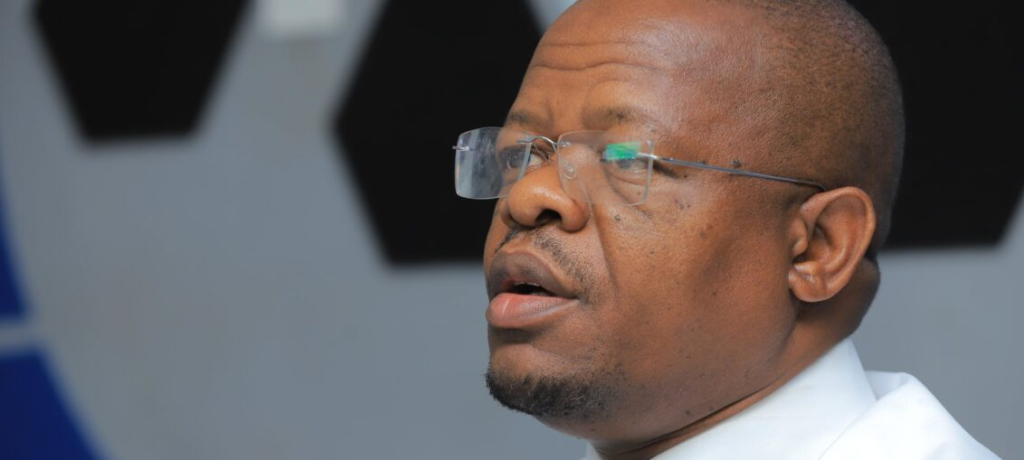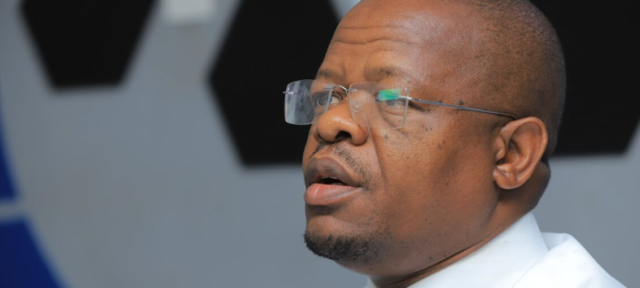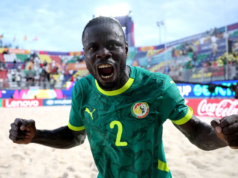
The National Sports Act, as it is called today, first of all, one of the things is to re-appeal the 1964 Sports Act. So, from the assent of the President, the 1964 Act goes on to the shelf. So, we have a new Law in place.
One of the areas addressed is Incorporation of Sports Federations, Organisations and Community Clubs. The situation we have been having is that as a Federation, you are also existing under another Law; for example, the Federation is also a Trustee under the Ministry of lands. The new Law has addressed that. That once you go to the National Council of Sports (NCS) as a Federation and recognised, that creates you into a body corporate that can sue and be sued, own property and be able to trade.
In the Incorporation, there are two sections, there is a Federation and Associations section—of course, the requirements for Federations are higher, but we know that there are Associations that are growing. But as we are aware, there are also community clubs that could not own property until they were another form and they are just simple sports community organisations. So today, what we have created in the new Law is that as a sports community, it can be incorporated to run its business on a constitution, election by the members but also own property, and we believe this will help so many football clubs but also other sports clubs throughout the country. So that is one new
change.
The second thing which is fundamental is also to protect the commercial properties of the creators. You know a player, a coach, a club owner come together and create (I will use football as an example) a property which is sold on the market either electronically or by presence, and the Law is actually protecting to ensure that the creators benefit from it. I have heard some people saying that the Federations are going to stop the media, it has never been the objective of the federation to stop the media because they are partners and players in ensuring that we promote this. So, the Law will be a mechanism on how we will operate. Authorisation does not necessarily mean the exchange of money, but let there be authorisation such that the content is carried out in good faith and promotion.
Controlling the vices affecting sports
The other area in the Sports Act is match-fixing which has been a problem. Some people have been arrested or have been implicated in match-fixing situations but there was no Law under which they could be sanctioned as far as the Country is concerned.
We know that the Uganda Police, the Government, has better means in terms of the resources, the tools, the Law but as a Federation all you could do is ban somebody from the sport, but that sometimes, the perpetrators of these acts are not even part of the sport to begin with. So, the new Law makes everybody who is on the land subject to the law. That match-fixing is now criminal at whatever level that you operate and we believe this will expose a number of people and will probably fight the vice.
There is also another issue addressed which is infrastructure. Where the national sports infrastructure had been eaten away and given away in the name of development. With the new law, we are harvesting the ownership of property, sports infrastructure, into the hands of the National Council of Sports—one central body. There will be another pitch to find money to rehabilitate or even create more sports infrastructure but at the moment at least what we have should not be lost further in the name of development.
I want to give a round of applause and thanks to the legal department of FUFA headed by Denis Lukambi because being the Federation lawyer, he did a lot in building the principal proposal of the private members’ bill. Then there is also one staff of Parliament called Tamale Mirundi, son of Mr. Tamale Mirundi, who is a lawyer and employee of Parliament, who did a lot in trying to guide in wording this in the language of Parliament and law. A lot of credit to the office of the Attorney General headed by Hon Kiwanuka Kiryowa and staff thereat. There are a number of people behind the scenes, and I am talking about the technocrats. Then also the staff of Parliament, Counsel Edrine is a clerk for the committee of Education and Sports. Basically, without mentioning names, the technical staff from the Ministry of Education and Sports, National Council of Sports, Office of the Attorney General and the Federations.
And I also want to commend the Committee of Education and Sports which listened to the various sports federations and different stakeholders that came in to shape the law the way it is today. Most importantly, I want to thank the cooperation I got from the Minister of State of sports, Honourable Peter Ogwang, the National Council of Sports leadership, Commissioner at the Ministry of Education and Sports in charge of physical education. I want to thank the Parliament itself starting from the Rt. Hon. Speaker, the Deputy Speaker Rt. Hon. Thomas Tayebwa, Hon. Basalirwa who was the seconder of the motion, and the Members of Parliament for the various debates to shape the law.
By the time the law comes out like this, there are too many people who have contributed to it and it would be wrong for me to think I can thank them one by one and be able not to miss anybody. I want to thank most sincerely the Minister of Education and Sports Hon. Janet Kataha Museveni. I would also like to thank His Excellency the President of the Republic of Uganda for undertaking his constitutional mandate because without him putting a signature to this, it wouldn’t be law. When it appeared to him, he had a few questions which we answered and eventually, we now have the law. Every time we have accessed His Excellency the President, he has given us the time and given us the ear despite his busy schedule.
I wouldn’t mind calling it a Magogo bill. For me, my dream was that the sports sector in the country is governed by law. Because we can draw internal regulations as federations on how we regulate ourselves, but we deal with external stakeholders – the public, sponsors, and the government. In the process of dealing with externals, we definitely need a law that guides our operations, protects our operations, and also safeguards us from using our product to harm the public in any way. So it was very important that we needed a law.
And for me, considering the journey as it was, we lost our tempers in a number of places and meetings. But one thing you cannot take away is that I had a passion for it. Bringing it up as a private member’s bill itself isn’t a usual occasion. Parliament allowed me to proceed and work on the bill. Then, remember you have to seek the certificate of financial implication from the Ministry of Finance in regard to the law. In the 60 days, it didn’t come, so we proceeded.
When I sat with Counsel Tamale, we removed all the articles that had financial implications. It was in the Ministry’s bill, which they eventually brought. Since parliament’s 60 days had passed, I proceeded, but when they brought it, we sat down and harmonised. They had very good contributions, so we made a joint effort to eventually come up with the law. You lose some, you win some, but in the end, I am happy that we have a law that addresses specific challenges and also ensures that those investing in sports are truly protected.
This has been one of the dreams I had many years ago when Ugandan football was going through a number of tribulations, and we thought that the best way to address them was to have a national law that addresses the modern times. Nobody was brilliant enough in 1964 to create a law that would address the situation of the current times. So whatever we tried to solve, there was going to be the challenge of the law which was designed for amateur sports — for recreation. When we tried as a federation to go through the channel, through the Ministry, it was not going to be a priority amongst the many priorities.
So what we decided as the Executive Committee of FUFA under my leadership was that we go to parliament. Unfortunately, it was only one who went through. When I started as a member of parliament, in one of the interviews, I was very clear that by the time I leave parliament, we have a modern sports law. And I continued pushing through the committees, the ministry, but the red tape of the ministry was going to be long. It needed a policy and billions of money for it to be done, yet that is not required for a private member. So I took it up, sought leave as provided for in the rules of procedure.
Today, as we speak, it is a different story and it has been a very long journey in between. Today we have a modern law, it addresses a number of challenges. It might not be the most perfect, but amending the law is different from re appealing and creating a new law. Let us give it a test of time; I am sure it will address some of the challenges. At a later date, we can come with modifications and seek amendments. For the moment, I want to thank everyone who made this happen.
FUFA might be the lead federation and has experienced so many things to reach where we are, so we know the journey. And whatever has been put in the law helps any federation that is working hard. If your federation is going to work on the development of the game, recruitment, preparation of teams, this law is going to be useful. All you have to do as a federation is do your things right, follow the natural path of growth that the Football Federation has done, and when you get to the top, you will realize that all these laws were for your growth and benefit.
But we have also taken care of the process of growth; the smaller associations should be given the time and process to grow into the bigger federations. There has also been a benefit that if we are doing sports infrastructure, it is not just for football. But infrastructure across the country, so everybody will be a beneficiary. The surface used for football is used for rugby and many others. Sports in schools have been regulated; one thing criminalized is age falsification and document falsification, which has been a big vice. Yet, this is where we pick the athletes from. So again, the perpetrators, there is no way you can ban them from school sports. But with this new act, it becomes criminal. It is you against the state.






